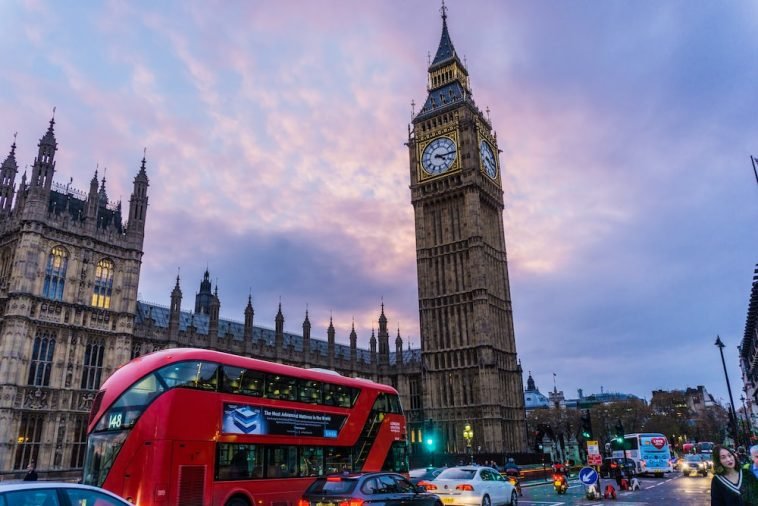Introduction.
Starting an Airbnb business in the UK can be an excellent opportunity to earn extra income and meet new people from around the world.
However, it is important to understand the legal requirements and regulations that govern short-term rentals in the UK.
In this article, we will provide a step-by-step guide on how to start an Airbnb business in the UK, including legal requirements, property preparation, marketing, and managing your business.
What is an AirBnb Business?
Airbnb is an online marketplace that allows property owners to rent out their homes, apartments, or spare rooms to travellers.
The platform enables users to search for and book accommodations in over 220 countries and regions around the world.
Founded in 2008, Airbnb has grown rapidly and has become a popular alternative to traditional hotels and other lodging options.
The platform offers a variety of property types, from cosy apartments to luxurious villas, and caters to a wide range of travellers, including families, solo adventurers, and business travellers.
Why Should I Start an Airbnb Business In The UK?
There are many reasons why starting an Airbnb business in the UK can be a great opportunity for entrepreneurs and property owners. Here are some of the top reasons why you should consider starting an Airbnb business in the UK:
1. High Demand for Short-Term Rentals
The UK is a popular tourist destination, attracting millions of visitors every year. This creates a high demand for short-term rentals, including Airbnb properties.
By starting an Airbnb business in the UK, you can tap into this demand and earn extra income by renting out your property to travellers from around the world.
2. Flexible Business Model.
Starting an Airbnb business in the UK is a flexible and scalable business model that allows you to rent out a spare room, a vacation home, or an entire property on a short-term basis.
This means that you can adjust your business to fit your lifestyle and financial goals, whether you want to earn some extra income on the side or turn your property into a full-time business.
3. Low Startup Costs.
Compared to other types of businesses, starting an Airbnb business in the UK requires relatively low startup costs.
In most cases, you can start renting out your property with minimal investment in furniture, decor, and amenities.
This means that you can start earning income right away, without having to spend a lot of money upfront.
4. Personal and Professional Growth.
Starting an Airbnb business in the UK can also provide personal and professional growth opportunities.
You will have the chance to meet new people, learn about different cultures, and develop your communication and hospitality skills.
Additionally, managing an Airbnb business can teach you valuable business skills such as marketing, finance, and customer service.
5. Positive Impact on Local Communities.
By starting an Airbnb business in the UK, you can also have a positive impact on local communities. By providing short-term rentals, you can help support local tourism and small businesses.
Additionally, by offering a unique and personalized guest experience, you can help promote your city or town as a desirable travel destination.
How do I Start an Airbnb Business In The UK?
Airbnb has become an increasingly popular way for people to rent out their properties and make some extra income.
If you’re considering starting an Airbnb business in the UK, there are some important steps you need to follow to ensure a successful and legally compliant venture. Here’s how to get started:
1. Check Legal Requirements.
Before you start renting out your property on Airbnb, it’s important to check the legal requirements in your area. In the UK, short-term rentals are subject to local regulations, which can vary by city or region.
Make sure you check with your local council to see if you need any licenses or permits to operate an Airbnb business in your area.
You may also need to pay taxes on any income you earn from renting out your property, so it’s important to keep accurate records and consult with a tax professional if needed.
2. Prepare Your Property.
Once you’ve checked the legal requirements, it’s time to prepare your property for guests. This may involve decluttering, cleaning, and decorating your space to create a comfortable and inviting environment.
You should also consider investing in quality bedding, towels, and other amenities to make your guests feel at home.
Be sure to provide clear instructions on how to use appliances, locks, and other features of your property to avoid any confusion or accidents.
3. Set Your Prices.
When it comes to setting your prices on Airbnb, it’s important to do some research and compare your rates to similar properties in your area.
You should also consider seasonal demand and adjust your prices accordingly. Keep in mind that Airbnb charges a service fee for each booking, which can range from 3% to 5% of the booking subtotal.
You may also want to consider offering discounts for longer stays or special promotions to attract more guests.
4. Create a Listing.
To start renting out your property on Airbnb, you need to create a listing that showcases your space and highlights its unique features.
Your listing should include high-quality photos, a detailed description of your property and amenities, and any house rules or restrictions.
Make sure you are transparent about any potential drawbacks or limitations, such as noise or construction in the area.
You may also want to include information about local attractions and activities to help guests plan their stay.
5. Market Your Listing.
Once your listing is live, it’s time to start marketing it to potential guests. You can promote your listing on social media, create a website or blog, and use Airbnb’s built-in marketing tools to boost your visibility.
You can also encourage your guests to leave reviews and feedback, which can help improve your ranking on Airbnb and attract more bookings.
Be sure to respond promptly to inquiries and bookings, and provide a high level of customer service to ensure that your guests have a positive experience.
6. Manage Your Guests.
As an Airbnb host, you’ll need to manage your guests and provide a high level of customer service. This may involve responding promptly to messages and inquiries, providing local recommendations and tips, and ensuring that your guests have a comfortable and enjoyable stay.
You should also have a system in place for cleaning and preparing your property between guests.
Be sure to communicate clearly with your guests about check-in and check-out procedures, and provide a way for them to contact you in case of any issues or emergencies.
7. Provide a Safe and Secure Environment.
Safety and security are top priorities for Airbnb guests, so it’s important to take steps to provide a safe and secure environment.
Make sure your property is equipped with working smoke detectors, carbon monoxide detectors, and fire extinguishers.
You should also ensure that all locks and entryways are secure and provide your guests with clear instructions on how to operate them.
It’s also a good idea to have a first aid kit on hand in case of any accidents or emergencies.
8. Build Your Reputation.
As an Airbnb host, your reputation is key to attracting more bookings and building a successful business.
Encourage your guests to leave reviews and feedback after their stay, and respond promptly to any negative feedback or concerns.
Use guest feedback to improve your property and enhance the guest experience. You can also reach out to past guests and offer them special discounts or promotions to encourage them to book with you again.
9. Stay Informed and Up-to-Date.
The Airbnb industry is constantly evolving, so it’s important to stay informed and up-to-date on the latest trends, regulations, and best practices.
Join online communities and forums for Airbnb hosts to share tips and advice, and attend industry events and conferences to learn from experts and connect with other hosts.
Keep track of any changes to local regulations or taxes that may impact your business, and consult with a legal or tax professional if needed.
Conclusion.
Starting an Airbnb business in the UK can be a lucrative and rewarding opportunity for property owners and entrepreneurs.
By tapping into the high demand for short-term rentals, embracing a flexible business model, and focusing on personal and professional growth, you can build a successful and sustainable Airbnb business that benefits both you and your community.
Finally, Starting an Airbnb business in the UK requires some planning, preparation, and hard work, but it can be a great way to generate extra income and connect with travellers from around the world.
By following these steps and focusing on providing a high-quality guest experience, you can build a successful Airbnb business that stands out from the competition and helps support local tourism.






GIPHY App Key not set. Please check settings